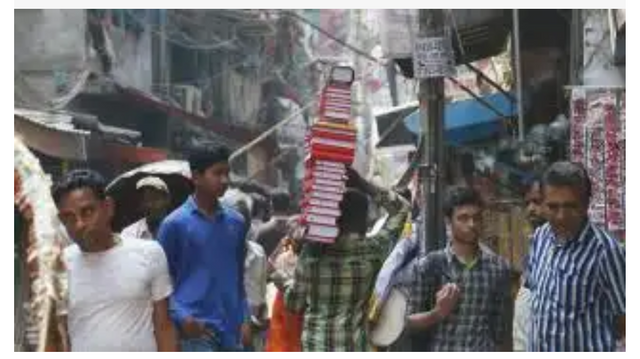The time, the opportunity and the environment combined with the addition of many traditions. The roots of some heritage are so deep that modernism prevails in hundreds of modern times, like the ancient bot trees. Bengali halhata Along with the evolution of the society, the tradition of celebrating traditional festivals has diminished, but it has survived in self-interest. The Bengali New Year comes as an integral part of the 'Halkhata'.

After the launch of Bangla San, Halkhata became the second big show in many ceremonies in celebrating the New Year. Through Haldhara manifesting faith, trust and deep relationship between the debtor and the creditor. It was a courtesy of tradition. In the last day of the month of Chaitra, the payment of all arrears and the next day, the owner and businessmen of Paisha Baishakh introduced their new year's accounts by sweetening their peasants and commodity buyers. However, the color of the color is still fake but the businessmen of old Dhaka are still in the halakhata.
Halkhata's current situation
Bangla Academy Director General Shamsuzzaman Khan said in the first light that after the launch of Bangla session, various formalities began to celebrate the New Year. Pahela Baishakh's second major event was 'Halkhata'. The traders used to do the show. Agricultural-based society could sell cash and cash in hand. Jute was the source of cash. Most of the farmers, including the peasants, could not see the face of cash while they did not have the money to sell crops in the crop season. As a result, they did not have any way to buy the goods in the rest of the year.
They paid the remaining money to the shopkeepers at Halhata, Paola Baishakh. Many people used to pay partial repayment of new year's book. They used to sell goods for sale. Everyone knew everyone and did not hesitate to give up. They believed that money would not kill anyone.
Before that, Nawab and zamindars of Baishakhi worshiped 'Poonah' festival, said Shamsuzzaman Khan. He said, its main objective was to recover the rent. In addition to the Nawabs of Murshidabad, zamindars of Bengal used to perform this ceremony. The people came and paid tribute on that day and used to go to sweeteners.
Shamsuzzaman Khan said that now there is lack of cash in the hands of the people. There is no longer the situation as before. The huge evolution of society has happened. There has also been a great change in the life of village-Bengal. Nobody knows anyone. City-based society has moved away from the society, the industry is developing, the industry is developing. Everybody has fewer cash in hand than now. So there has been a huge change in Halhata's celebrations.
Azam Bakhsh, director of Dhaka University, Dhaka's History, Heritage and Cultural Institute, Dhaka director, Azim Bakhsh, in his sixties, expressed his experience of Halkhara in the 60's. He said in the first light, 'It is essentially a business show. Hindu traders in old Dhaka, especially the wholesale traders, had a tendency to halhata It was observed through a lot of emotions. After the year's transaction, the accounts of Paa Baishakh were updated. It was a red-colored book wrapped in a red saloon cloth. Two or three folds were tied with ribbons. The accounts were opened in old accounts and new accounts were opened. The people who took the goods for the rest of the day tied the party and paid the rest and used to pay advance for the new year.
Azim Bakhsh said, 'I have seen that Hindu traders used to go to Dhakeswari Mandir with the new book before halakhata began with the old writers leaving the old book. Worshiped Pujari used to sip raw paddy in the vermilion and use it as a seal and used to inaugurate the new book. Considering Paisa as Lakshmi, they used to perform this ritual in the hope of benefiting the business. With the increase of the Muslim traders in old Dhaka, the festival started fluttering.
Azim Bakhsh further said, "Old Dhaka is no longer a businessman in Dhaka. With the expansion of the city this tradition has begun to lose color. However, there is still the tendency of haladahara in the goldsmith. Though they are minor, they hold the tradition of Halkahta. The traders in Hazaribagh, Tantibazar, Farashganj, Badamtali, Imamganj and Chawkbazar also made the halhata in small areas. Some of the big gold traders are going to follow it.
Would you like to add some points?
Than comment and also Follow me
wish you SHUVO NOBOBORSHO 1425
Downvoting a post can decrease pending rewards and make it less visible. Common reasons:
Submit
Tnx and you too..
Downvoting a post can decrease pending rewards and make it less visible. Common reasons:
Submit